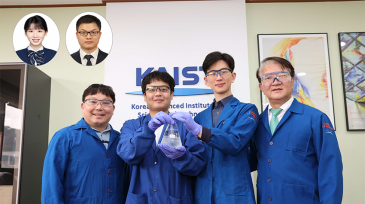HSE & Sustainability
EZOps will integrate its Mobile Oilfield Management platform into the college’s energy technology program, giving students hands-on experience with digital tools used in modern oilfield operations.
Researchers are studying how excessive groundwater extraction is causing global and regional aquifer depletion and land subsidence.
Cleopatra Folakemi St. Michael, SPE, shares how her internship experience gave her the confidence to connect theory with practice, to think critically, and to understand that innovation often begins with simple observations.
-
The 1-month project, led by UT Austin's Estibalitz Ukar, will pump CO2-rich water into a 400-m-deep well to test if magnesium-rich rocks at the test site can capture CO2 by turning it into stable minerals.
-
After a decade of research, the project boasts several achievements including drilling two test wells at depths below 9,800 ft, detailed geologic modeling and reservoir characterization, and multiple publications.
-
University of Colorado Boulder researchers will combine tools, such as power systems modeling, spatial statistics, and GIS mapping along with community forums, surveys, and interviews to capture both the human and technical sides of geothermal development.
-
The plan seeks to train the next generation of clean-energy workers, aiming to double employment in the sector to 860,000 by 2030.
-
The researchers found that adding nutrients such as nitrogen initially boosted soil carbon storage in previously tilled croplands and that these carbon gains persisted for decades even after fertilization and tilling stopped.
-
Emerson and HeroX are teaming up to award $60,000 in prize money to inventive thinkers who develop next-generation solutions to advance flow-measurement technology in critical industrial systems.
-
Assistant Professor Lori Tunstall received more than $1 million from the Gordon and Betty Moore Foundation to explore how municipal waste can be converted into biochar to replace cement in concrete.
-
Researchers at KAIST developed an integrated chemobiological platform that converts renewable feedstocks like glucose and glycerol into essential aromatic hydrocarbons (BTEX) using engineered E. coli strains and a solvent-integrated catalytic process, offering a sustainable alternative to petroleum-based production.
-
The two projects under the university’s Targeted Proposal Teams program will focus on underground hydrogen and geologic storage solutions.
-
Researchers at Colorado School of Mines explore an internally deployed fiber-optic distributed acoustic sensing (DAS) method for continuous gas-pipeline monitoring, demonstrating its potential to improve leak detection, enable early intervention, and enhance overall pipeline-integrity management compared to conventional inspection techniques.
Page 1 of 7













